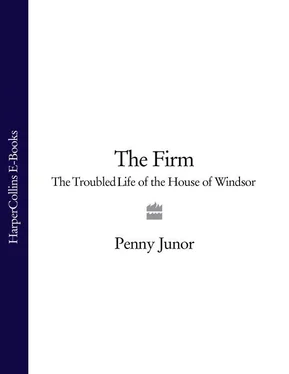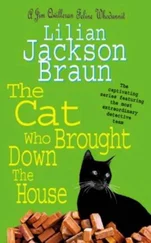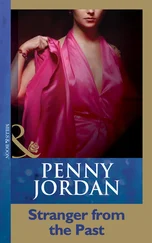Like his father and grandfather, George VI, the Prince has a terrifying temper that has reduced strong men to tears; it was that which finally drove Michael Colborne away. Lord Mountbatten, the Prince’s great-uncle and mentor, had once said when he was on the point of leaving in the very early days, ‘Bear with him, Michael, please. He doesn’t mean to get at you personally. It’s just that he wants to let off steam and you’re the only person he can lose his temper with. It’s a back-handed compliment really, you know. He needs you.’
The Prince did need him, not least in helping him cope with Diana. The story of Charles and Diana and their marriage has been analysed and written about ad nauseam – I have done a fair share of it myself – but I am now about to do it again. This is partly because no book about the monarchy can ignore the significance that that marriage and all the consequences of its failure has had on the institution; and partly because, in my view, despite all the books, articles and documentaries, there is still a profound misconception about the whole sorry tale.
Colborne was one of the first people the Prince told about his proposal to Diana. He was the one who organized flowers to greet her on her return from Australia where she had gone while making up her mind about marriage. The Prince had asked him to send her the biggest, most fragrant bunch of flowers he could find and had handwritten a welcome home note to go with them. They had been delivered by the Prince’s police protection officer, yet years later, when the Princess was talking about her rotten marriage, she threw it out as a sign of his callousness: ‘I came back from Australia,’ she told Andrew Morton. ‘Someone knocks at the door – someone from his office with a bunch of flowers and I knew that they hadn’t come from Charles because there was no note. It was just somebody being very tactful in the office.’ Nothing could have been further from the truth.
Colborne became like a father to Diana in her early years in the Palace, but he could see there was going to be trouble from the start. At nineteen, she was little more than a child when she first arrived, totally unprepared for the life that lay ahead and completely out of her depth. She was a romantic, an innocent, she knew nothing of life or work or relationships. The things she knew about were loss and rejection, the product of her parents’ divorce; and she had been fatally damaged by the experience. She had no self-confidence, no stability, just a desperate need to be loved and wanted; and a determination to get what she wanted.
She wanted the Prince of Wales – she had fallen in love with him – but it was the idea as much as the man she was in love with. In reality she scarcely knew him; and he knew nothing about her because she hadn’t let him. She had presented to him a Diana she knew he would be attracted by; a Diana who shared all of his interests, who loved the country, who was easy, loving, funny and uncomplicated. It was only once the ring was on her finger and she found herself transported from her all-girl, giggly flat in Fulham to an impersonal suite of rooms in Buckingham Palace, with no one of her own age for company and a fiancé who was always busy, that the real Diana began to emerge. The happy, easy-going girl became moody, wilful and suspicious. The moods swung wildly; one minute she would be laughing and joking, the next she would be kicking the furniture, displaying a terrible temper that Charles had never seen before. It came from nowhere, along with hysterical tears, and could be gone in an instant. She took sudden dislikes to people she had previously appeared to like, accused them of spying on her or being out to get her; she was jealous of friends and ex-girlfriends (not so surprising); she was even jealous of the Prince’s relationship with his mother, and convinced that the Queen was writing about her in the letters and memos she sent her son.
To begin with Diana and Michael Colborne shared an office and she spent many an hour pouring out her heart to him. A more secure, mature nineteen-year-old might have coped, might have had a better understanding of what she was taking on, but Diana had none. She had a romanticized view of marriage and no experience of commitment. When she had encountered difficulty in her life – a school she disliked, a dancing job she didn’t enjoy – she ducked out of it; no one had ever made her do anything she didn’t want to do. With two sets of parents there had never been any real discipline. Discipline: the key to being a member of the Royal Family. She wasn’t marrying the man, she was marrying the job; she was joining the Family Firm, and, as Michael Colborne tried to explain to her, it was a unique way of life.
One weekend she had been at Royal Lodge in Windsor and had decided to go for a walk without telling anyone. All hell broke loose because of the security implications, and on the Monday morning she told Michael what had happened. She said she didn’t know how she was going to cope.
‘This is going to be your life,’ he had said.
You’re never going to be on your own again. And you’re going to change. In four to five years you’re going to be an absolute bitch, not through any fault of your own, but because of the circumstances in which you live. If you want four boiled eggs for breakfast, you’ll have them. If you want the car brought round to the front door a minute ago, you’ll have it. It’s going to change you. Your life is going to be organized. You open your diary now and you can put down Trooping the Colour, the Cenotaph service, Cowes Week, the Ascots. You can write your diary for five years ahead, ten years, twenty years.
That was the reality. There would be no spontaneity, no last-minute plans, no ducking out of commitments. Her carefree life of being a nobody was over. For a nineteen-year-old that was a terrifying prospect.
Colborne is convinced that if Lord Mountbatten, murdered by the IRA in 1979, had still been alive a year later, Charles and Diana would never have married. He is probably right. Years later, Diana spoke about being the ‘sacrificial lamb’ on the day of her wedding, of how she had wanted to back out of it some weeks before but been told by her sister that it was too late: her face was on the tea towels. If she did have doubts, despite their frank and lengthy conversations she certainly never expressed them to Colborne.
Charles himself had serious doubts about whether he had made the right decision during their engagement, but he kept them to himself. He asked the advice of a number of people – official advisers, friends and family – before he proposed to Diana, aware that this was no ordinary marriage and that he couldn’t afford to make a mistake. Most people counselled for the marriage, including, significantly, the Queen Mother. She was very keen on the match; Diana was the granddaughter of her friend and lady-in-waiting, Ruth, Lady Fermoy, and in every sense, on paper, the perfect match. Ruth Fermoy knew it wasn’t; but, socially ambitious for her granddaughter, she chose to keep quiet. Years later in 1993, only a month before she died, the old lady apologized to the Prince of Wales for failing to warn him. Diana, she knew, had been ‘a dishonest and difficult girl’. Her father, who died in 1991, also admitted he had been wrong not to say something.
And so, having taken soundings, Charles went ahead and proposed, knowing that despite the consensus among those he’d spoken to, in his heart of hearts he was still uncertain. ‘It all seems so ridiculous because I do very much want to do the right thing for this country and for my family,’ he said, ‘but I’m terrified sometimes of making a promise and then perhaps living to regret it.’ He was in a ‘confused and anxious state of mind’, he confessed to one friend. To another, ‘It is just a matter of taking an unusual plunge into some rather unknown circumstances that inevitably disturbs me but I expect it will be the right thing in the end.’
Читать дальше












